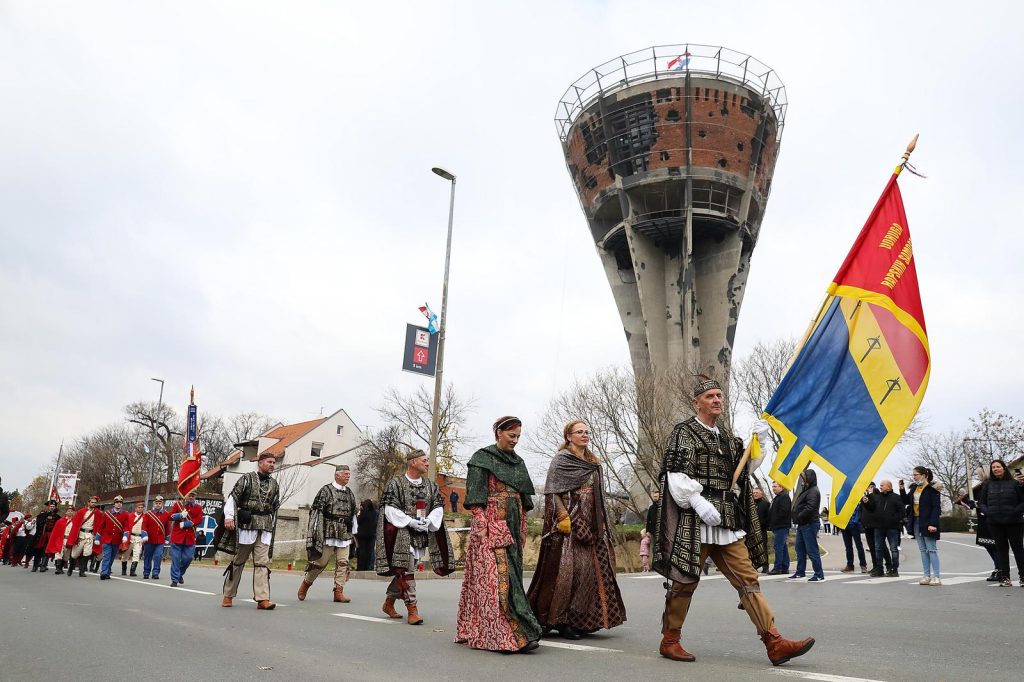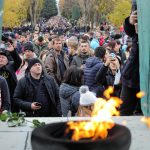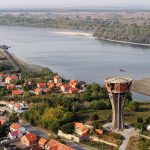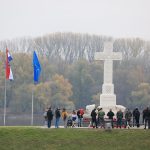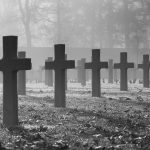Veterans’ Minister Tomo Medved said that arrivals in Vukovar awakened emotions every time.
“We express our gratitude to our courageous defenders and in a special way pay homage to the victims who were taken from the hospital to the Ovčara farm, to all our POWs, people who were taken to Serb concentration camps. The thing that is very important, is that today is a day when emotions are present to that measure, on the other hand, we have to work throughout the year for society to have appropriate relations towards Croatian defenders and the victims of the Homeland War, said Minister Medved.
Kata Zadro, the widow of legendary defense commander of the Trpinjska cesta street, Major General Blago Zadro who was killed in 1991, also marched in Vukovar on Thursday. “Vukovar today looks very nice. When I was here before the peaceful reintegration I couldn’t find my own street or my house, given the way the city looked like then. Today, everything is renewed but it bothers me because there is no harmony or unity,” she said.
According to Vukovar’s defense commander Branko Borković, the Vukovar episode is not over because the perpetrators have not been punished yet.
“There are many open wounds. Many mothers, children, grandchildren are still searching for their loved ones. That means a very large number who still have not been found. That is a huge burden that not only burdens us all but is an obligation for the state authorities, regardless of their political background to insist and fight for that,” said Borković.
Lyliane Fournier also attended the march. Fournier is the mother of a French volunteer Jean-Michel Nicolier, who was one of the victims taken from the Vukovar hospital and killed at the Ovčara farm.
“I am filled with emotion. We are waiting for the state prosecutor to finish the procedure and to conduct an investigation, to indict my son’s murderer. All we have now is a decision by the court in Osijek. I am surprised with how many people are so kind to me and how many people remember my son,” she said.
Flag bearers were at the helm of the march carrying the flags of Croatia army units including Croatian historical units dressed in historical uniforms.
As the procession passed in front of the building of Croatian Radio Vukovar, its staff played the last report by its wartime reporter Siniša Glavašević who was killed at the Ovčara farm on 20 November 1991 along with 199 other victims.
Similar to previous years, the country’s top officials, President Zoran Milanović, Parliament Speaker Gordan Jandroković, and Prime Minister Andrej Plenković attended the procession.
They were accompanied by several cabinet ministers, members of Parliament, representatives of political parties, and many public figures, like Vukovar Mayor Ivan Penava, Vukovar-Srijem County Prefect Damir Dekanić, and numerous other mayors and county prefects. Zagreb Mayor Tomislav Tomašević was also seen at the march.
The Bosniak member of the Presidency of Bosnia and Herzegovina, Šefik Džaferović, also participated in the commemorations and laid a wreath at the Memorial Cemetery.
After the march, numerous delegations laid wreaths and lit candles in honor of the victims of the Homeland War.
Holy Mass was celebrated by Zagreb Auxiliary Bishop Ivan Šaško.
The city on the River Danube was under siege for 87 days, and the battle for Vukovar ended on 18 November 1991 with its occupation, which lasted until 15 January 1998 and the peaceful reintegration of the Croatian Danube region, after which the people of Vukovar finally returned to their homes.
For the latest news about Croatia, click here.

